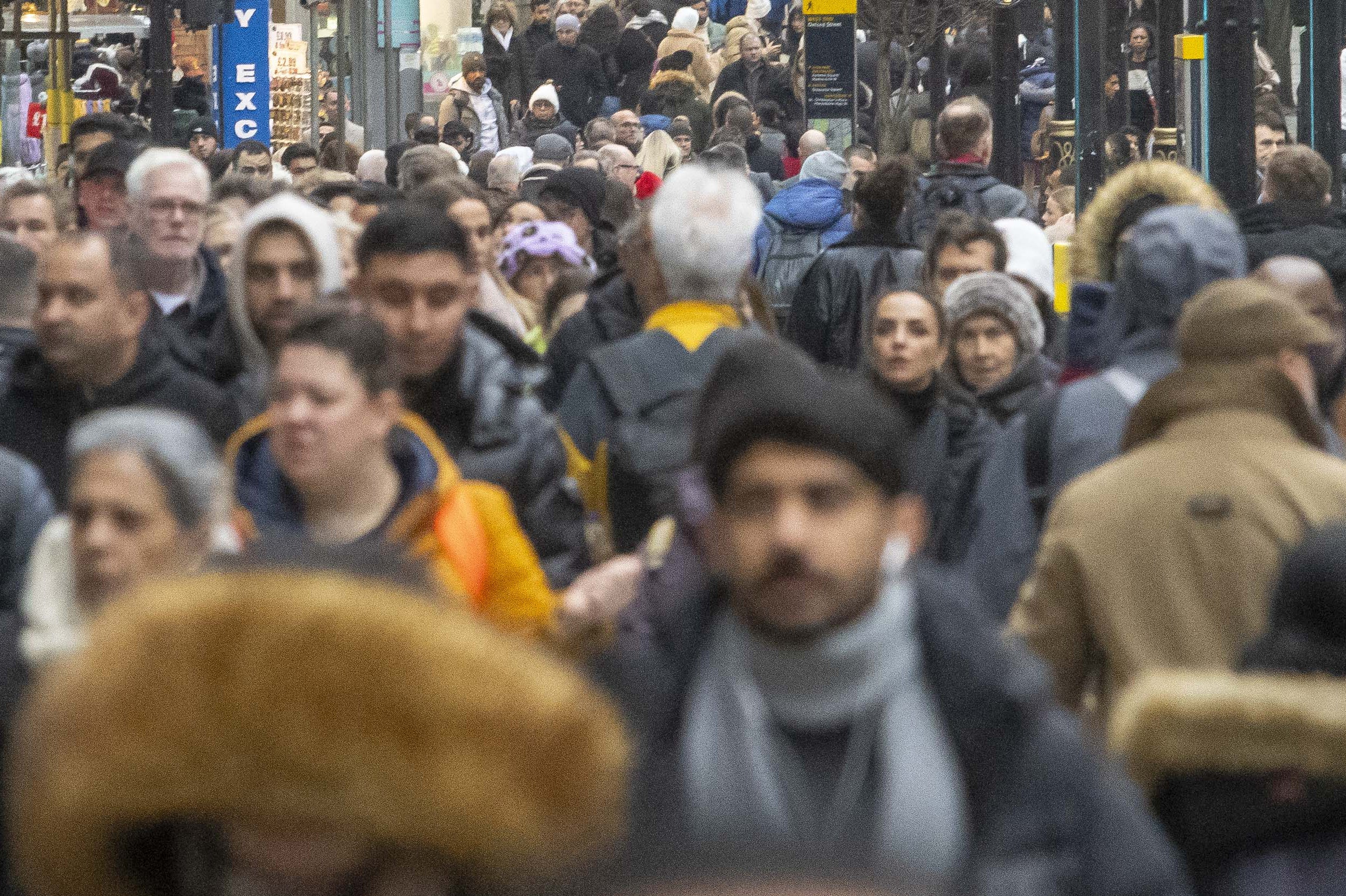The UK population has seen the second largest annual rise in over 75 years, fuelled by spiralling migration, official estimates show.
The number of people in the UK grew by more than three-quarters of a million in the year to June 2024, new estimates from the Office for National Statistics (ONS) found.
The boom was fuelled in the majority by increased international migration to the UK, with births and deaths accounting for only a small proportion of the change.
There were a record 69.3 million people estimated to be in the UK in mid-2024, up 755,254 (1.1 per cent) from 68.5 million in mid-2023, according to the ONS.
It is the second largest numerical jump since at least 1949, when comparable data begins, behind only the rise of 890,049 that took place in the preceding 12 months from mid-2022 to mid-2023.
It comes as Sir Keir Starmer introduces ID cards for all UK workers in a bid to crack down on illegal working.
The number of births in the UK in the year to mid-2024 was the lowest for at least 42 years. The population grew the fastest in England, with 1.2 per cent growth, compared to Scotland (0.7 per cent), Wales (0.6 per cent) and Northern Ireland (0.4 per cent).
There were more deaths than births in Wales and Scotland during this period.
Net international migration – the difference between people moving to the country and leaving – accounted for 98 per cent of the total increase in population, the ONS estimated.

Nigel Henretty of the ONS said: “The UK population has increased each year since mid-1982.
“The rate of population increase has been higher in recent years, and the rise seen in the year to mid-2024 represents the second largest annual increase in numerical terms in over 75 years.
“Net international migration continues to be the main driver of this growth, continuing the long-term trend seen since the turn of the century.”
This is a developing story…
